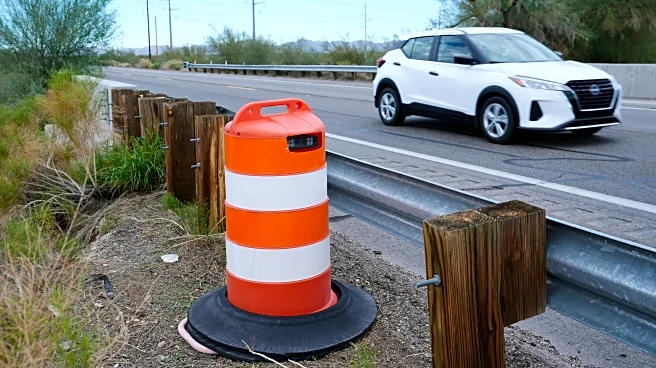What's Happening?
Wabtec Corporation and Vale have announced a partnership to explore the use of ethanol in locomotives as part of Vale's decarbonization efforts. The collaboration will focus on developing a dual-fuel engine capable of operating on both diesel and a diesel-ethanol mix. Initial studies will be conducted in laboratories to assess performance, emissions reduction, and the potential substitution rate of ethanol for diesel. The tests are expected to continue until 2027, with the aim of implementing the technology in the Vitória-Minas Railway fleet in Brazil. This initiative is part of Vale's broader strategy to reduce its carbon emissions, aligning with its goal to cut absolute emissions by 33% by 2030 and achieve net-zero carbon emissions by 2050.
Why It's Important?
The partnership between Wabtec and Vale represents a significant step towards reducing carbon emissions in the rail industry. By potentially replacing diesel with ethanol, a renewable fuel, the initiative could lead to substantial environmental benefits. Vale's rail network currently accounts for 14% of its carbon emissions, and the adoption of alternative fuels could significantly lower this figure. The move aligns with global efforts to combat climate change and supports Vale's commitment to the Paris Agreement's goals. Successful implementation could set a precedent for other companies in the transportation sector to adopt similar sustainable practices.
What's Next?
Vale and Wabtec will continue their laboratory studies and tests over the next few years to refine the dual-fuel engine technology. If successful, the technology could be rolled out across Vale's railway operations, further advancing its decarbonization program. The companies plan to increase the percentage of biodiesel used in locomotives, potentially leading to broader adoption of ethanol as a fuel source. This could prompt other rail operators to consider similar initiatives, driving industry-wide changes towards more sustainable practices.












